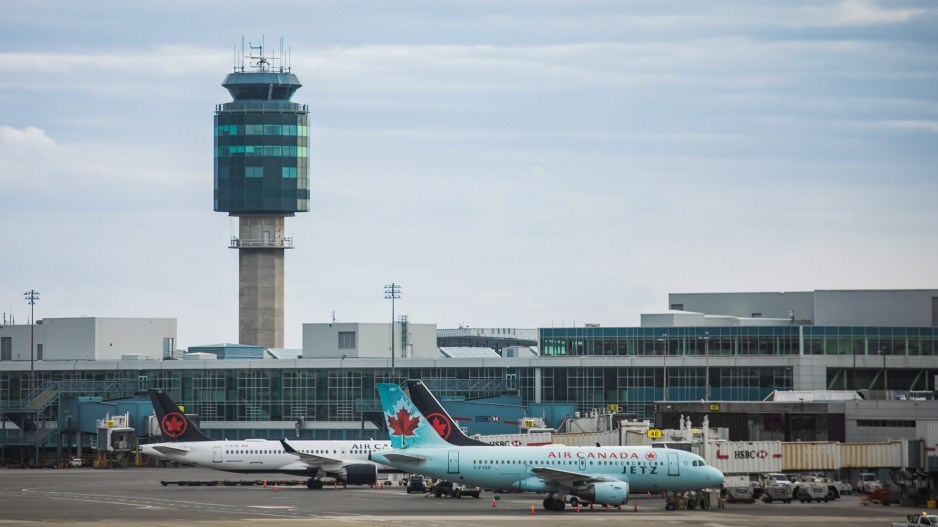Vancouver International Airport (YVR) saw a record-high number of domestic passengers in 2023, according to data that the airport posted yesterday.
The 12,812,955 domestic passengers who either boarded or disembarked planes last year at the airport was more than one per cent (131,643) more than the previous record of 12,681,312 such passengers, in 2019, before the COVID-19 pandemic disrupted travel.
Domestic travel at YVR plunged more than 66 per cent, or by 8.439,961 passengers, to 4,241,351 passengers in 2020. About 56.6 per cent, or 2,401,102 of those domestic passengers in 2020 passed through YVR in the first three months of that calendar year. Governments around the world in March 2020 and then virtually sealed borders to limit COVID-19 from spreading. .
Overall, 24,938,184 passengers either boarded or disembarked flights at YVR in 2023, up 5,924,768, or nearly 31.2 per cent, from the 19,013,416 passengers who boarded or disembarked flights at the airport in 2022. Back in 2019, a record 26,379,870 passengers either boarded or disembarked planes at YVR.
Fewer international visitors was why YVR's overall passenger count was 1,441,686 passengers, or about 5.5-per-cent shy of matching the 2019 record. The decline in international visitors is present across the board.
The biggest tumble in traffic at YVR came from those in the Asia-Pacific region.
Plane trips at the airport by people from that region were down more than 26.3 per cent, in 2023 compared with 2019, while trips from passengers from Europe were down more than 10.7 per cent between those two years.
Trips by Americans, at 6,047,572, were down nearly 5.8 per cent, .
The only category of international visitor where YVR's 2023 passenger count exceeded that in 2019 was a small miscellaneous category.
and is currently at about 77 per cent of its pre-pandemic level, according to VAA manager of air service development Nathaniel Wong.
“China bilaterals continue to be the limiting factor for this [regional] sector, but there are key markets that are at pre-pandemic levels,” Wong said.
“Australia, New Zealand, Taiwan, Japan and South Korea are already at or close to pre-pandemic levels. Hong Kong has been recovering well also.”
Evidence of passenger growth ahead includes that between YVR and Tokyo’s Narita International Airport (NRT) in March.
Flair Airlines CEO Stephen Jones on Feb. 8 confirmed that his airline will embark on new routes, such as one set to be twice weekly between Vancouver International Airport (YVR) and Guadalajara, Mexico, starting May 31. The last time an airline had a non-stop scheduled route between Vancouver and Guadalajara was 2004.
Flair Airlines also continues to , Jones and chief commercial officer Garth Lund confirmed to BIV.
Other airlines are also increasing capacity: United Airlines (Nasdaq:UAL) has added capacity between YVR and Dallas, San Francisco and Chicago.
Air Canada (TSX:AC), similarly, has loaded more capacity on routes between YVR and airports such as NRT, Hong Kong International Airport and Seoul’s Incheon International Airport.
American Airlines (Nasdaq:AAL) launches non-stop flights between YVR and North Carolina’s Charlotte Douglas International Airport this summer.
Westjet is set to add non-stop flights between YVR and Detroit Metropolitan Wayne County Airport starting April 28.
“Air Canada also launches direct to Singapore in early April, and it ,” Wong said.
It is domestic travel at YVR, however, that has already seen significant year-over-year increases.


